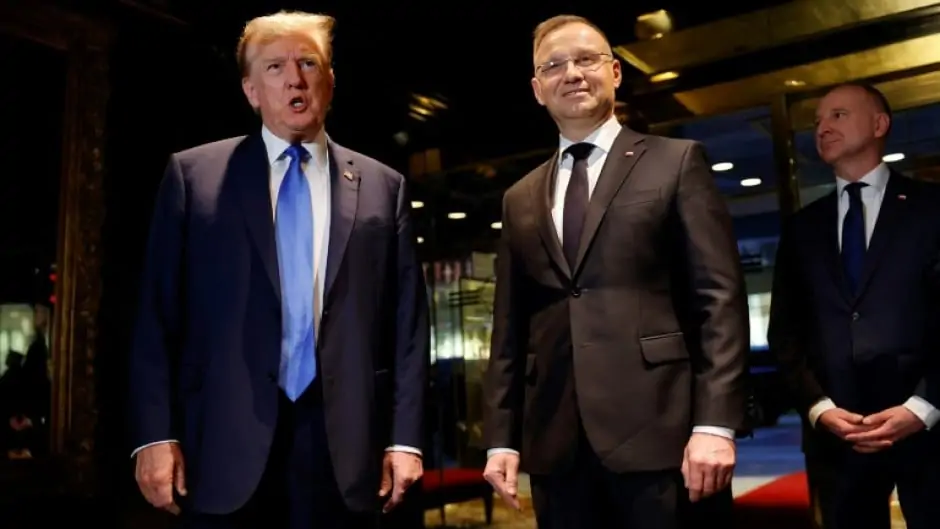
In an unprecedented move, former US President Donald Trump has emerged as a central figure in global diplomacy, operating in stark contrast to the foreign policy agenda of current President Joe Biden. Hosting dignitaries at his Florida estate and engaging in high-level discussions, Trump’s actions signal a potential return to the international stage, setting the stage for a diplomatic showdown.
Trump’s recent engagements reflect a strategic effort to undermine Biden’s key foreign policy objectives. Notably, his interactions with leaders like Polish President Andrzej Duda and British Foreign Secretary David Cameron underscore a deliberate attempt to shape geopolitical narratives and alliances.
During a recent meeting with President Duda, Trump hailed the Polish leader’s conservative stance and criticized the European Union, positioning himself as a champion of like-minded leaders who challenge established norms. Such encounters not only bolster Trump’s image but also signal a willingness to revisit past alliances, potentially reshaping the global political landscape.
Similarly, Trump’s engagement with Cameron, a former critic turned ally, highlights the complexity of transatlantic relations under the Biden administration. Despite previous disagreements, Cameron’s visit to Trump’s Mar-a-Lago estate underscores a pragmatic approach to diplomacy, wherein shared interests, such as support for Ukraine, outweigh ideological differences.
Moreover, Trump’s embrace of Hungarian Prime Minister Viktor Orban, known for his nationalist agenda, further underscores his divergence from traditional diplomatic norms. Praising Orban as a “tough man,” Trump aligns himself with leaders who prioritize national sovereignty over supranational institutions, challenging the status quo in European politics.
Critics warn that Trump’s shadow diplomacy could jeopardize longstanding alliances and exacerbate global tensions. His willingness to cozy up to leaders like Orban and Orban’s stance on issues such as migration could strain relations with European partners, undermining efforts to foster unity and cooperation.
Furthermore, Trump’s ambiguous stance on critical issues, such as military aid to Ukraine and the Israeli-Palestinian conflict, adds uncertainty to his foreign policy agenda. While he promises swift action if re-elected, the lack of specifics raises questions about the feasibility and coherence of his approach.
Analysts note the influence of key figures within Trump’s inner circle, such as former ambassador Rick Grenell and son-in-law Jared Kushner, in shaping his foreign policy vision. Grenell’s abrasive demeanor and unorthodox approach to diplomacy signal a departure from traditional diplomatic norms, emphasizing pragmatism over protocol.
Meanwhile, Kushner’s business interests in Serbia and ties to Saudi Arabia raise concerns about conflicts of interest and ethical implications. His pursuit of lucrative deals amidst diplomatic engagements underscores the blurred lines between personal gain and national interest in Trump’s inner circle.
Despite criticism, Trump’s supporters defend his approach, citing the need for assertive diplomacy in a complex geopolitical landscape. Grenell, in particular, champions economic interests as a cornerstone of foreign policy, advocating for trade as a means to enhance national security.
As the Biden administration navigates global challenges, including tensions with Russia and China, Trump’s shadow diplomacy poses a formidable challenge. His unconventional tactics and willingness to upend established norms could reshape international relations, leaving a lasting impact on the geopolitical landscape.
In conclusion, Trump’s emergence as a key player in global diplomacy represents a significant departure from traditional norms, challenging Biden’s foreign policy agenda and reshaping alliances on the world stage. As the dynamics of international relations continue to evolve, the implications of Trump’s shadow diplomacy remain uncertain, underscoring the complexity of contemporary geopolitics.
This website uses cookies.